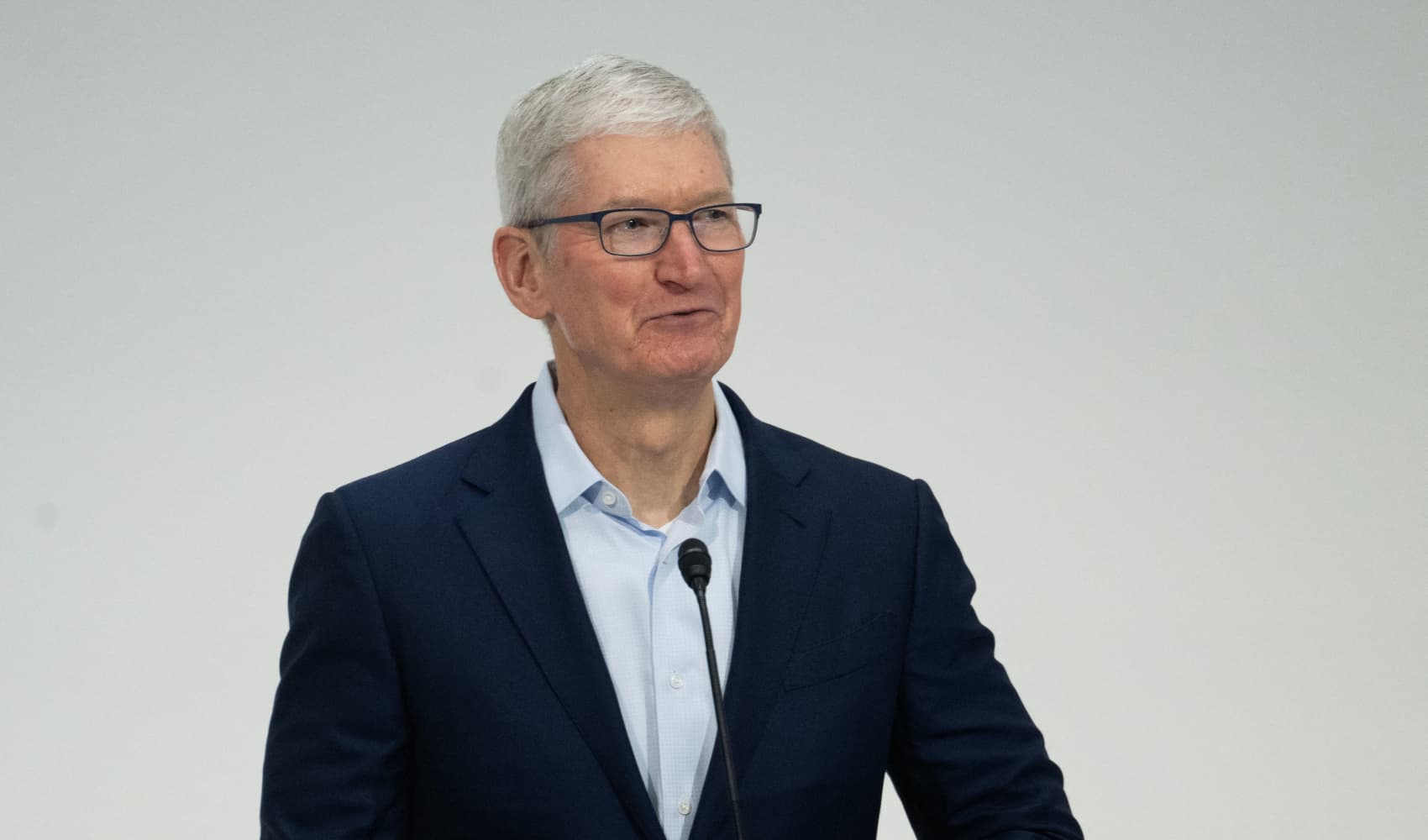
(This article was sent first to members of the CNBC Investing Club with Jim Cramer. To get the real-time updates in your inbox, subscribe here.)
Costco (COST) reported solid first-quarter fiscal 2022 results after the closing bell Thursday. Total revenue increased 16.5% YoY to $50.363 billion and beat FactSet estimates of $49.652 billion, while earnings per share grew nearly 14% YoY to $2.98 and beat FactSet estimates of $2.62. The results include a tax benefit of $0.21 per share related to stock-based compensation and a write-off of certain IT assets of $0.20 per share.
Over the full 12-week period, adjusted comparable sales (which exclude impacts from changes in gasoline prices and foreign exchange) grew 9.9% in the United States, 8.3% in Canada, 10.9% in Other International, and 13.3% in E-commerce. These comp results should not be a surprise because Costco reports its sales numbers every month.
Traffic, or shipping, frequency in Costco's warehouses inflected and increased 6.8% worldwide and 5.9% in the United States. Costco's average transaction increased 7.7% worldwide and 8.5% in the United States.
Get Tri-state area news and weather forecasts to your inbox. Sign up for NBC New York newsletters.
Revenue from membership fees is a closely followed metric because that's where the majority of Costco's profits come from. Membership fees increased about 9.9% YoY to $946 million, beating estimates of $929.6 million.
Costco ended its quarter with 113.1 million total cardholders, an increase from 111.6 million total cardholders last quarter. Paid executive members ended the quarter at 26.5 million, up 836,000 from last quarter.
Renewal rates in the United States and Canada were 91.6%. That's up 0.3 of a percentage point from last quarter. The worldwide renewal rate was 89%, also up 0.3 of a percentage point. Auto-renewals continue to be a driver of the strong retention rates. Also, increased penetration of executive members — who tend to renew at a higher rate than non-exec members — was a driver for the strong retention rate.
Money Report
Costco's margins
On company margins, reported gross margins were lower by 49 basis points YoY, or 6 basis points, excluding gas inflation. The main driver of the gross margin compression was core merchandise — where margins were lower by 63 basis points YoY on a reported basis and 26 basis points without gas inflation — though management did point out that they were able to retain a significant amount of gross margin improvement from two years ago. This might be due to structural improvements and market share gains.
On core margin on their own sales, core and core margins were lower by 18 basis points. Non-foods margins were higher, though food and sundries were slightly lower year over year. Fresh foods, however, were the primary driver of core being lower year over year, mostly due to strong comps last year.
Considering some of the ongoing inflationary pressures and management's best efforts to limit passing through price increases on to its members, CFO Richard Galanti said on the earnings call that he thought the gross margin results were "pretty good."
As for some other items, the global popularity of Costco means the company still has plenty of room for expansion. The company had 8 net openings in the reporting quarter and they plan to open a net 19 new units over the remainder of the year.
On the supply chain and the resulting inflationary pressures, Galanti outlined some of the challenges that every retailer is going through right now. Overall, Galanti said he feels "pretty good" about their inventory position and their work to mitigate cost and price increases. Galanti said he is seeing year-over-year price inflation at about 4.5% to 5%. This is slightly higher than the range Costco discussed last quarter but consistent with what others are experiencing.
2022 catalysts
There are a couple of catalysts we are on the lookout for next year. First up is the potential for a special cash dividend. Costco has a history of paying out a special cash dividend to shareholders. This is something they have done four times in the past eight years. Costco last issued one in November 2020, but the strength of their cash flow from operations has put them in a position to reward shareholders again sometime soon.
We also think it may be only a matter of time before management hikes the price of its membership fee. Historically Costco increases the cost of a membership every five years, and it will be five years next summer. With Costco's loyalty rates as strong as they are, Costco can probably increase its membership fee with little resistance from customers. And remember, fee income is pure profit.
Even though shares of Costco nicely outperformed the broader market this year, these two potential events are reasons to stick with stock in 2022.
Lastly, on that November monthly sales miss we wrote about last week, Galanti noted that it might have been due to a pull forward in sales. We simply think expectations got a little elevated after Costco topped expectations month after month after month. We do not think there is any real slowdown here.
In reaction to the quarter, shares of Costco are up slightly in after-hours trading. Muted responses to the quarterly results are par for the course for Costco because their monthly reporting style keeps investors up to date with how the business is performing.
But overall, Costco reported good results tonight. This consistent retailer continues to gain new customers, take market share, and above all else, keep prices low for its shoppers. Remember, it's the subscription-based model and Costco's massive size and scale that help keep costs down. They could raise prices if they really wanted to, but management prefers to focus on doing what's best for its members. As CFO Richard Galanti reminded everyone on the earnings call, Costco will always be the last one to raise prices and the first to lower them. You have to admire this way of doing business.
The CNBC Investing Club is now the official home to my Charitable Trust. It's the place where you can see every move we make for the portfolio and get my market insight before anyone else. The Charitable Trust and my writings are no longer affiliated with Action Alerts Plus in any way.
As a subscriber to the CNBC Investing Club with Jim Cramer, you will receive a trade alert before Jim makes a trade. Typically, Jim waits 45 minutes after sending a trade alert before buying or selling a stock in his charitable trust's portfolio. If the trade alert is sent pre-market, Jim waits 5 minutes after the market opens before executing the trade. If the trade alert is issued with less than 45 minutes in the trading day, Jim executes the trade 5 minutes before the market closes. If Jim has talked about a stock on CNBC TV, he waits 72 hours after issuing the trade alert before executing the trade. See here for the investing disclaimer.
(Jim Cramer's Charitable Trust is long COST .)






